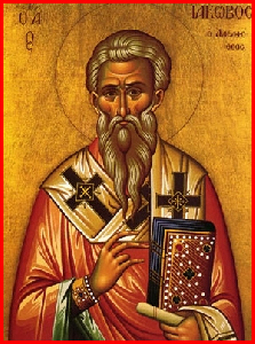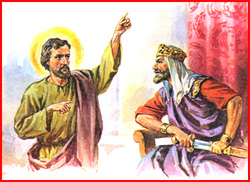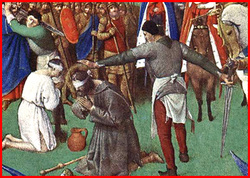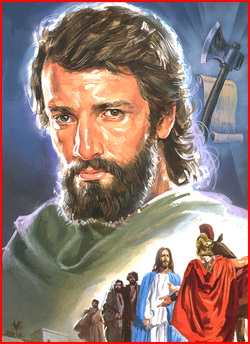| Devotion to Our Lady |
|
- Homepage
-
Daily Thoughts
- 2023 October Daily Thoughts
- Daily Thoughts Lent 2020
- Daily Thoughts for Advent 2019
- Daily Thoughts for October 2019
- Daily Thoughts for September 2019
- Daily Thoughts for August 2019
- Daily Thoughts for July
- Daily Thoughts for June
- Daily Thoughts for Easter 2019
- Daily Thoughts for Lent 2019
- Daily Thoughts for Christmas
- Daily Thoughts Easter 2022
- Sacred Heart
- Holy Ghost
-
Spiritual Life
- Holy Mass Explained
- First Friday Devotions
- First Saturday Devotions
- The Mercy of God
- Vocations
- The Path Everyone Must Walk >
- Gift of Failure
- Halloween or Hell-O-Ween?
- Ignatian Spiritual Exercises >
- Meditation is Soul-Saving
- Spiritual Communion
- Miraculous Medal
- Enrollment in Miraculous Medal
- St. Benedict Medal
- Holy Water
- Advice on Prayer
- Your Daily Mary
-
Prayers
- September Devotions
- Seven Sorrows of Our Lady
-
Novenas
>
- NV-Help of Christians
- NV-Nativity of Our Lady
- NV-Seven Sorrows
- NV- Sorrowful Heart
- NV-Pope St Pius X
- NV-La Salette
- NV-St Michael Archangel
- NV-Immaculate Heart
- NV-Assumption
- NV-Novena for Fathers
- NV-Novena for Your Mother
- NV-St Raphael Archangel
- NV-Souls in Purgatory
- NV-All Saints Day
- NV-Christ the King
- NV-Divine Motherhood
- NV-Guardian Angels
- NV-Rosary
- NV-Mirac Med
- NV- Imm Conc
- NV - Guadalupe
- NV - Nativity of Jesus
- NV-Epiphany
- NV-OL Good Success
- NV-Lourdes
- NV-St Patrick
- NV-St Joseph
- NV-Annunciation
- NV-St Louis de Montfort
- NV-OL Good Counsel
- NV-Last Supper
- NV-Passion
- NV-Pentecost
- NV-Ascension
- NV-Sacred Heart
- NV-Sacred Heart & Perpetual Help
- NV-Corpus Christi
- NV-OL of Perpetual Help
- NV-Queenship BVM
- NV-OL of Mount Carmel
- NV-St Mary Magdalen
- NV- Im Hrt
- August Devotions to IHM
- Immaculate Heart of Mary
- Litany of Dependence
- Prayers to St Mary Magdalen
- Prayers in Times of Sickness Disease & Danger
- Holy Souls in Purgatory
- Meditations on the Litany of Our Lady
- Special Feast Days
- Prayers to Mary (Mon-Sun)
- Litanies to Our Lady >
- Various & Special Needs
- Our Lady of the Rosary
- Our Lady of Mt. Carmel
- Our Lady of Perpetual Help
- Our Lady of Guadalupe
- Other titles of Our Lady
-
Rosary
- Downloads
- Consecration
- Easter Season
-
Holy Week
- Last Seven Words of Jesus >
- Characters of Passion >
- The Last Days of Christ
- Before Palm Sunday
- Palm Sunday
- Monday in Holy Week
- Tuesday in Holy Week
- Wednesday in Holy Week
- Holy Thursday (Last Supper)
- Holy Thursday (Agony & Arrest)
- Night Vigil with Christ
- Good Friday (Pilate & Herod)
- Good Friday (Way of Cross & Crucifixion)
- Saturday in Holy Week
-
Lent
- Ideas for Lent
- Daily Lenten Planner
- Daily Lenten Liturgy
- From Cold to Hot
- Lent with Aquinas
- Lent with Dom Gueranger
- Virtues for Lent
- History of Penance
- How Expensive is Sin?
- Confession of Sins
- Letter to Friends of the Cross
- Sermons for Lent
- Stations of the Cross >
- Lenten Prayers
- 7 Penitential Psalms
- Lenten Psalms SUN
- Lenten Psalms MON
- Lenten Psalms TUE
- Lenten Psalms WED
- Lenten Psalms THU
- Lenten Psalms FRI
- Lenten Psalms SAT
- Lenten Laughs
- Septuagesima
-
Christmas
- Epiphany Explained
- Suggestions for Christmas
- Food For Thought
- Christmas with Aquinas
- Christmas with Dom Gueranger
- Christmas Prayers
- Candles & Candlemas
- Christmas Sermons
- Christmas Prayers SUN
- Christmas Prayers MON
- Christmas Prayers TUE
- Christmas Prayers WED
- Christmas Prayers THU
- Christmas Prayers FRI
- Christmas Prayers SAT
- Twelve Days of Christmas >
-
Advent Journey
- Purgatory
- Christ the King
- Legion of Mary
- Scapular
-
Saints
-
Martyrs for the Faith
>
- Your Daily Martyr >
- All 365 Days of Martyrs
- Cristeros
- St Valentine & Valentine's Day
- Martyrs--Thomas Becket
- Martyrs--John the Apostle
- Holy Machabees
- Age of Martyrdom
- Carmelites of Compiegne
- Martyrs--Peter & Paul
- Martyrs--John the Baptist
- Martyrs--Andrew
- Martyrs--James the Great
- Martyrs--North American
- Martyrs--Seven Holy Sleepers
- Martyrs--Afra
- School of Martyrdom
- Martyrs--Christina
- Desert Saints >
- Saints for Sinners >
- Saints of Mary >
- History of All Saints Day
-
Martyrs for the Faith
>
- Precious Blood
- Synod 2023
-
Catechism
- Catechism Lesson 1
- Catechism Lesson 2
- Catechism Lesson 3
- Catechism Lesson 4
- Catechism Lesson 5
- Catechism Lesson 6
- Catechism Lesson 7
- Catechism Lesson 8
- Catechism Lesson 9
- Catechism Lesson 10
- Catechism Lesson 11
- Catechism Lesson 12
- Catechism Lesson 13
- Catechism Lesson 14
- Catechism Lesson 15
- Catechism Lesson 16
- Catechism Lesson 17
- Catechism Lesson 18
- Catechism Lesson 19
- Catechism Lesson 20
- Catechism Lesson 21
- Catechism Lesson 22
- Bible Study
-
Calendar
- Miracles
- Apparitions
- Shrines
- Prophecies
- Angels Homepage
- Hell
-
Church Crisis
- Conspiracy Theories
- Amazon Synod 2019 >
- Liberalism & Modernism
- Modernism--Encyclical Pascendi
- Modernism & Children
- Modernism--Documents
- The Francis Pages
- Church Enemies on Francis
- Francis Quotes
- Amoris Laetitia Critique
- Danger of Ignorance (Pius X)
- Restore all In Christ (Pius X)
- Catholic Action (Pius X)
- Another TITANIC Disaster?
- The "Errors of Russia"
- CRISIS PRAYERS
- Election Novena 2024
- The Anger Room
- War Zone
- Life of Mary
- Spiritual Gym
- Stupidity
- Coronavirus and Catholicism
- History & Facts
- Books
- Catholic Family
- Children
- Daily Quiz
-
Novena Church & Pope
- Day 01 Church-Pope Novena
- Day 02 Church-Pope Novena
- Day 03 Church-Pope Novena
- Day 04 Church-Pope Novena
- Day 05 Church-Pope Novena
- Day 06 Church-Pope Novena
- Day 07 Church-Pope Novena
- Day 08 Church-Pope Novena
- Day 09 Church-Pope Novena
- Day 10 Church-Pope Novena
- Day 11 Church-Pope Novena
- Day 12 Church-Pope Novena
- Day 13 Church-Pope Novena
- Day 14 Church-Pope Novena
- Day 15 Church-Pope Novena
- Day 16 Church-Pope Novena
- Day 17 Church-Pope Novena
- Day 18 Church-Pope Novena
- Day 19 Church-Pope Novena
- Day 20 Church-Pope Novena
- Day 21 Church-Pope Novena
- Day 22 Church-Pope Novena
- Day 23 Church-Pope Novena
- Day 24 Church-Pope Novena
- Day 25 Church-Pope Novena
- Day 26 Church-Pope Novena
- Day 27 Church-Pope Novena
- Day 28 Church-Pope Novena
- Day 29 Church-Pope Novena
- Day 30 Church-Pope Novena
- Day 31 Church-Pope Novena
- Day 32 Church-Pope Novena
- Day 33 Church-Pope Novena
- Day 34 Church-Pope Novena
- Day 35 Church-Pope Novena
- Day 36 Church-Pope Novena
- Day 37 Church-Pope Novena
- Day 38 Church-Pope Novena
- Day 39 Church-Pope Novena
- Day 40 Church-Pope Novena
- Day 41 Church-Pope Novena
- Day 42 Church-Pope Novena
- Day 43 Church-Pope Novena
- Day 44 Church-Pope Novena
- Day 45 Church-Pope Novena
- Day 46 Church-Pope Novena
- Day 47 Church-Pope Novena
- Day 48 Church-Pope Novena
- Day 49 Church-Pope Novena
- Day 50 Church-Pope Novena
- Day 51 Church-Pope Novena
- Day 52 Church-Pope Novena
- Day 53 Church-Pope Novena
- Day 54 Church-Pope Novena
- Penance Novena
- Daily WeAtheR Forecast
CLICK ON THE NAME OF THE SAINT YOU WISH TO VIEW
(not all links are activated at this time)
THE ROMAN MARTYROLOGY FOR EACH MONTH OF THE YEAR
| January | February | March | April | May | June | July | August | September | October | November | December | All 365 Days on One Page |
MARTYRED SAINTS
| Your Daily Martyr | The Age of Martyrdom (20th & 21st centuries) | The School of Martyrdom | St. Peter the Apostle | St. Paul of Tarsus | St. James the Great |
| St. Andrew | St. John the Baptist | The North American Martyrs | St. Christina | St. Afra | The Seven Holy Sleepers | The Cristeros of Mexico |
SAINTS OF MARY
| St. Louis-Marie de Montfort | St. Dominic | St. John Eudes | St. Maximilian Kolbe | St. Bernard | St. Alphonsus Liguori | St. Ephrem |
| St. Catherine Laboure | St. Bernadette | St. Bridget | St. Catherine of Siena | Pope St. Pius X |
DESERT SAINTS
| Saints of the Desert | St. Paul the Hermit | St. Anthony of Egypt | Desert Father Wisdom |
SAINTS FOR SINNERS
| St. Paul of Tarsus | St. Augustine | St. Mary Magdalen | Dismas the Good Thief |
(not all links are activated at this time)
THE ROMAN MARTYROLOGY FOR EACH MONTH OF THE YEAR
| January | February | March | April | May | June | July | August | September | October | November | December | All 365 Days on One Page |
MARTYRED SAINTS
| Your Daily Martyr | The Age of Martyrdom (20th & 21st centuries) | The School of Martyrdom | St. Peter the Apostle | St. Paul of Tarsus | St. James the Great |
| St. Andrew | St. John the Baptist | The North American Martyrs | St. Christina | St. Afra | The Seven Holy Sleepers | The Cristeros of Mexico |
SAINTS OF MARY
| St. Louis-Marie de Montfort | St. Dominic | St. John Eudes | St. Maximilian Kolbe | St. Bernard | St. Alphonsus Liguori | St. Ephrem |
| St. Catherine Laboure | St. Bernadette | St. Bridget | St. Catherine of Siena | Pope St. Pius X |
DESERT SAINTS
| Saints of the Desert | St. Paul the Hermit | St. Anthony of Egypt | Desert Father Wisdom |
SAINTS FOR SINNERS
| St. Paul of Tarsus | St. Augustine | St. Mary Magdalen | Dismas the Good Thief |
THE MARTYRDOM OF ST. JAMES THE GREAT, APOSTLE
Feast day : July 25th
|
Son of Thunder
James—the Son of Zebedee and brother of the Apostle John—was a Galilean, and, with his brother John, one of the first of the Apostles whom Jesus chose and called to follow Him. While James and John were in a ship, with Zebedee their father, mending their nets, Jesus passed by and told them to follow Him, and they immediately left the ship, and their father, and followed Him. (Matthew 4:21-22). Jesus gave them the nickname of “Boanerges”, which means, “The Sons of Thunder” (Mark 3:17). A Favorite of Our Lord's Peter, and James, and John, were the three Apostles whom the Savior loved best; whenever He chooses a smaller number from the Apostles to accompany Him for some special deed or event, it was Peter, James and John that He took with Him. We see Jesus take them up into an high mountain, and was transfigured before them (Matthew 17:1-2); when Jesus went to the house of the ruler of the synagogue, to raise his daughter from the dead, He took nobody with Him except Peter, and James and John (Mark 5:37); and, at the last, just before the Jews arrested Him, on the night of the Last Supper, when He went to pray in the garden of Gethsemane, He took with Him Peter, James and John once again (Matthew 26:36-37). James and John were also present at the curing of Peter’s mother-in-law. Therefore, it is not just a coincidence that these three always seemed to be with Jesus at crucial times. Thunders Against Sin After the Resurrection and Ascension of Jesus into Heaven, James preached how that Jesus was God, and led many in Judaea and Samaria to the Christian Faith. A while afterward, he went to Spain, and there he brought some to Christ, of whom seven were afterwards ordained Bishops by Blessed Peter, and were the first such sent into that country. From Spain James went back to Jerusalem, where he taught the Faith to various persons, and, among others, to the Magian Hermogenes. Thereupon Herod Agrippa, who had been made ruler the kingdom under the Emperor Claudius, to curry favor with the Jews, condemned James to death for his firm confession that Jesus Christ is God. The officer who led James to the judgment seat, at sight of the courage with which he was ready to offer up his testimony and life, declared himself also to be a Christian. He, too, was arrested and condemned to death with James. As they were being hurried to execution, this man asked pardon of James, and the Apostle kissed him, saying, “Peace be unto thee.” James then healed a paralytic, and immediately afterwards both the prisoners were beheaded. The body of the Apostle was afterwards taken to Compostella, in the province of Gallicia, in Spain, where his grave is very famous and has become one of the chief pilgrimage destinations. Multitudes of pilgrims from all parts of the earth go there to pray. The birthday of James is kept by the Church upon this day, which is that of the bringing of his body to Compostella. It was about Easter-time (Acts 12:2-4) that he bore witness to Jesus Christ with his blood, at Jerusalem, being the first of the Apostles to do so. St John on St. James St. John Chrysostom gave a homily on St. James the Great, from which we will quote a few extracts: “Let no man be troubled if we say that the Apostles were still imperfect, for the mystery of the Cross was not yet finished, the grace of the Spirit had not yet been shed abroad in their hearts. If thou wilt behold them in their strength, consider them such as they became after the grace of the Spirit was given them, and thou wilt perceive that they had trodden underfoot every vain desire. This is reason why their present imperfection is made known unto us, that is, that thou mayest see how great a change could be forthwith wrought by grace. But, nevertheless, let us now look how they came unto Christ, and what they said. “Master,” they said, “we desire that whatsoever we shall ask, thou wouldst do it for us” (Mark 10:35). And He said unto them “What would you that I should do for you?” (Mark 10:36). “Not that He did not know not what their wish was, but so that He could give them answer, and so uncover the wound, to lay a healing medicine upon it. Their wish proceeded from earthly motives, and they were shy and ashamed to express it, and therefore they took Christ to one side, and so asked Him. The Evangelist says, “For they were gone apart, that they might not be discovered of them and then they told Him what they sought.” “To me it seemeth most likely that they had heard how that the disciples should sit upon twelve thrones; they were desirous to obtain for themselves the chief places at this enthronement. They knew that the Lord loved them better than the most of the others; but they feared that Peter would still be preferred before them; and therefore they made bold to say “Grant to us, that we may sit, one on thy right hand, and the other on thy left hand, in thy glory.” (Mark 10:37). They were even insistent with Him, saying: “Grant to us, that we may…” “And what did Jesus answer? To show that they were asking no spiritual gift, nor even knew for themselves what they were asking, nor would have asked it if they had known what it was, Jesus said unto them “You know not what you ask. Can you drink of the chalice that I drink of: or be baptized with the baptism wherewith I am baptized? But to sit on my right hand, or on my left, is not mine to give to you, but to them for whom it is prepared.” In other words, “You don’t know what you’re asking for, not are you aware of the fact that what you ask for, is not in my power to give, but it lays in the power of the Father. But if you say that you want and are able to drink of My chalice, then drink you shall, for that is something within My power that I can arrange for you.” “See how He turns their thoughts at once another way, speaking to them of things altogether different, as though He said, “You come unto Me speaking of honors and crowns, but I am speaking to you of the wrestling and the sweat. There is no honor without the labor or the fight or the battle being won. Now is not the time for honor and reward, now is the time of the battle and the fight! My own glory will not at this time be revealed to you, but only after I have drunk the chalice and fought and won the battle. “But consider how, by the manner of His questioning, He both exhorts and invites them. He does not say: “Are ye able to endure death or martyrdom? Are ye able to shed your blood?” but He says to them,“Are ye able to drink the cup” unto which He then invites them to His ‘banquet’ or battle, offering them “the cup that I shall drink of”; so that He may make them readier for the battle and fight, by making known to them that it is a battle and a fight which they are to share with Him.” (St John Chrysostom, 66th Homily on Matthew). |
Web Hosting by Just Host




